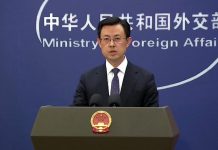For the past four years, Thailand has been overwhelmed by street demonstrations staged by various political factions while police have found it difficult to maintain control over the crowds without concrete laws to support their operations. The Public Demonstration Bill is expected to be an effective tool to restore peace and order in the kingdom.
Since the 2007 Constitution was promulgated, Thailand has sustained extensive damages from political movements of various groups, particularly the yellow-shirt People’s Alliance for Democracy (PAD), which is responsible for the notorious besiegement of Don Mueang and Suvarnabhumi Airports as well as the Government House, and the red-shirt United Front of Democracy Against Dictatorship (UDD), which took over Bangkok’s Ratchaprasong Intersection, intruded on Chulalongkorn Hospital and launched a series of arson attacks in the heart of the city.
Even though people have the rights to assemble peacefully and without weapons as stipulated by Section 63 of the Constitution, the allowed freedom is often exploited and cited by protesters as an excuse for their prolonged demonstrations and occupation of roads, which have caused great inconveniences to the general public.
Based on the second paragraph of Section 63, protesters cannot be deprived of such freedom unless a law is specifically drafted to restrict their gathering for the public benefit. Therefore, the Public Demonstration Bill was proposed by the National Police Office to the Cabinet, which gave a green light to the bill on 4 May 2010 after it had been studied by the Office of the Council of State. The bill was then forwarded to the House of Representatives and was approved in principle in the first reading on 10 March 2011.
There are 39 sections under the Public Demonstration Bill focusing on managing people’s rallies in public areas. Main points of the bill are as follows:
Public gatherings must not obstruct entrances and exits of important places, such as royal palaces, Parliament, Government House, courts, government offices, airports, seaports, train stations, transport terminals, hospitals, educational institutions, religious places, embassies and consulates.
Rally organizers must inform the superintendent of the local police station at least 72 hours in advance of their activity with details on the date, time and location. The organizers must be present at all times during the protest in order to ensure that the situation is peaceful and that the activity is not prolonged beyond the schedule.
If the assembly is deemed unlawful, police can seek a court order for its immediate dissolution. If protesters refuse to disband, the authorities can declare the area a special control zone and set a deadline for the crowd to vacate the site. Anyone breaching the given deadline is considered breaking the law and is subject to an arrest.
As for punishments, those found causing inconveniences to the public without prior notice to the police will face a fine of not more than 1,000 THB. Any individual who persuades others to join an unlawful gathering will be sentenced to a prison term of not more than six months and/or a fine of not more than 10,000 THB.
Weapon possession during a protest is the most serious violation. Those carrying improvised weapons will be given a jail term of not more than one year and/or a fine of not more than 20,000 THB. Those found with heavy weaponry, such as guns and explosives, will face up to five years in prison and/or a fine of up to 100,000 THB.
However, upon its enactment, the Public Demonstration Bill will not have any retroactive effects.




